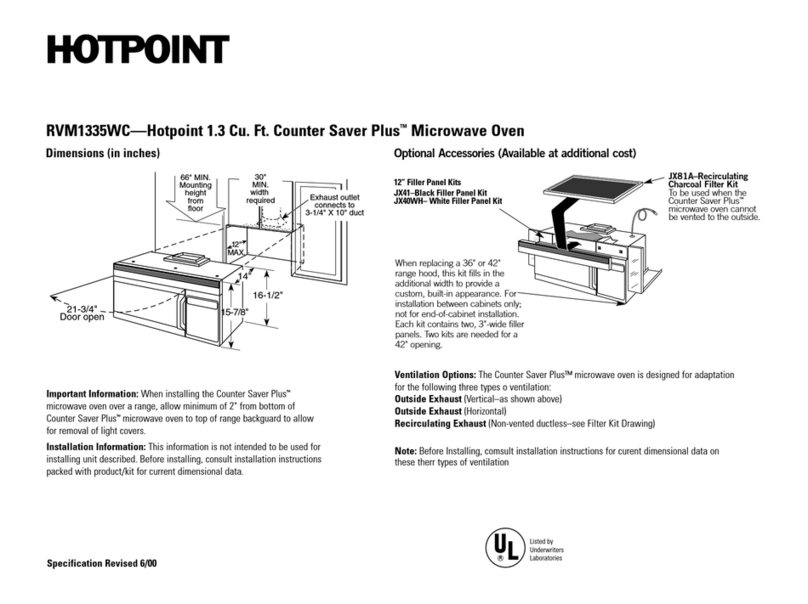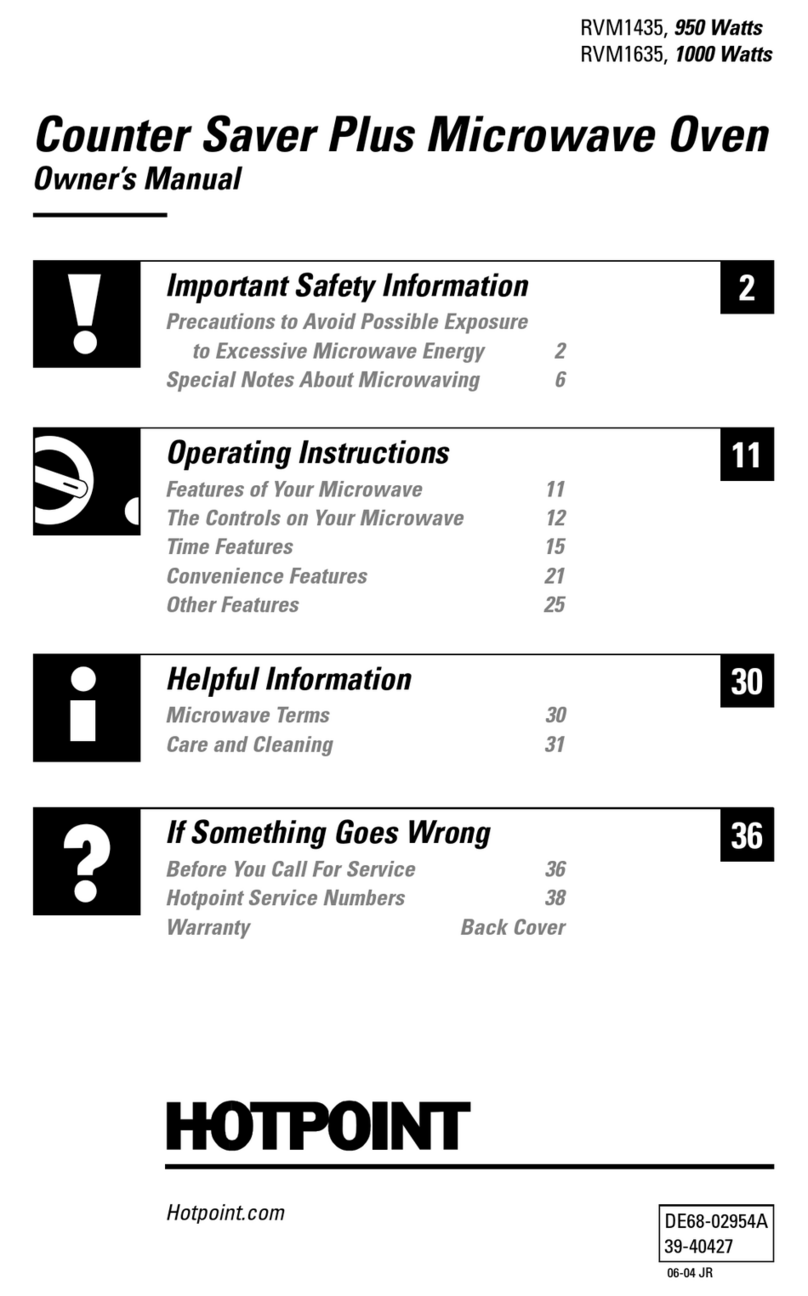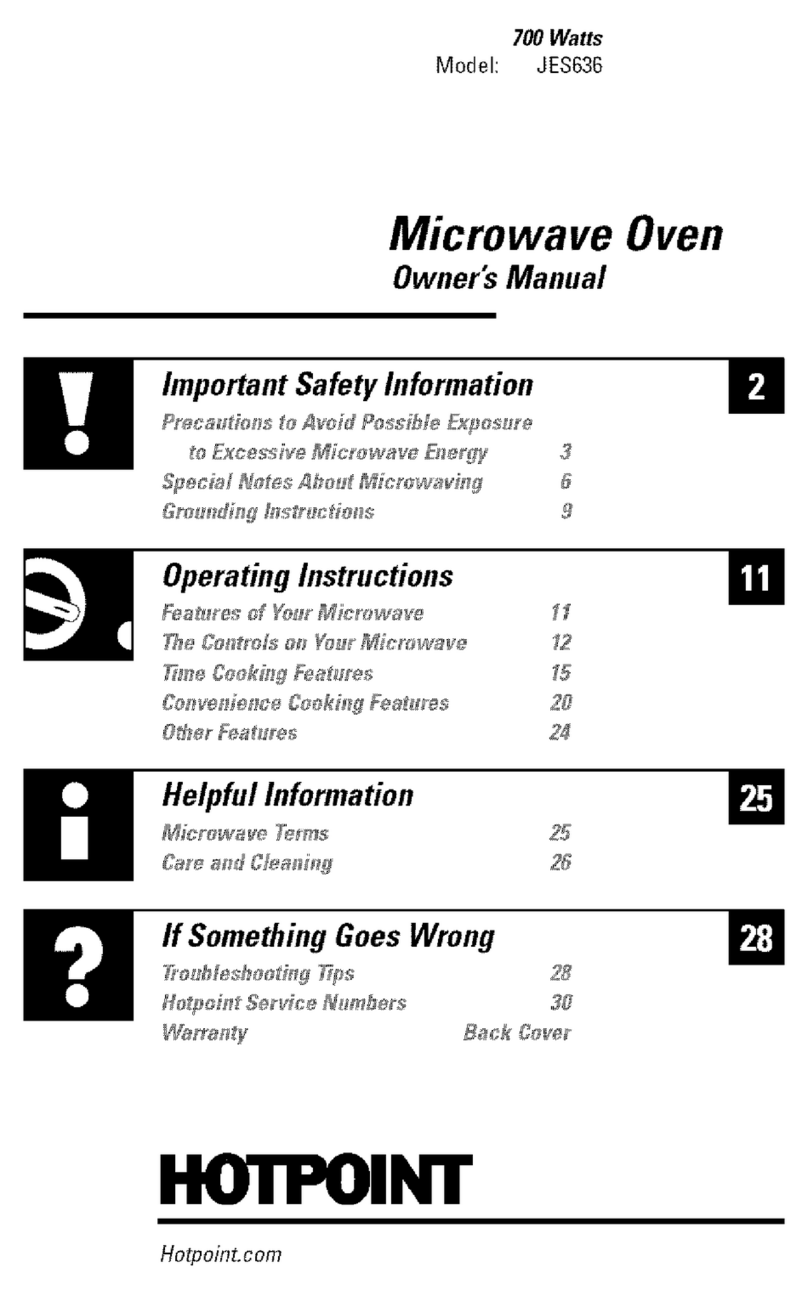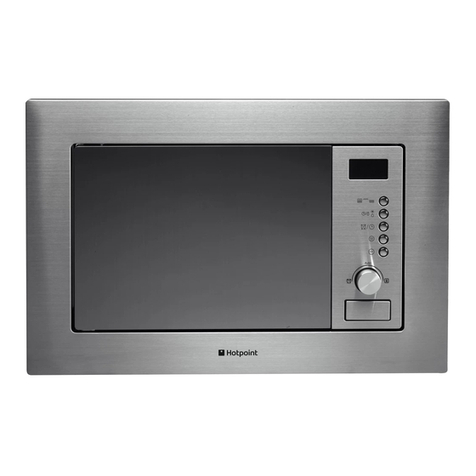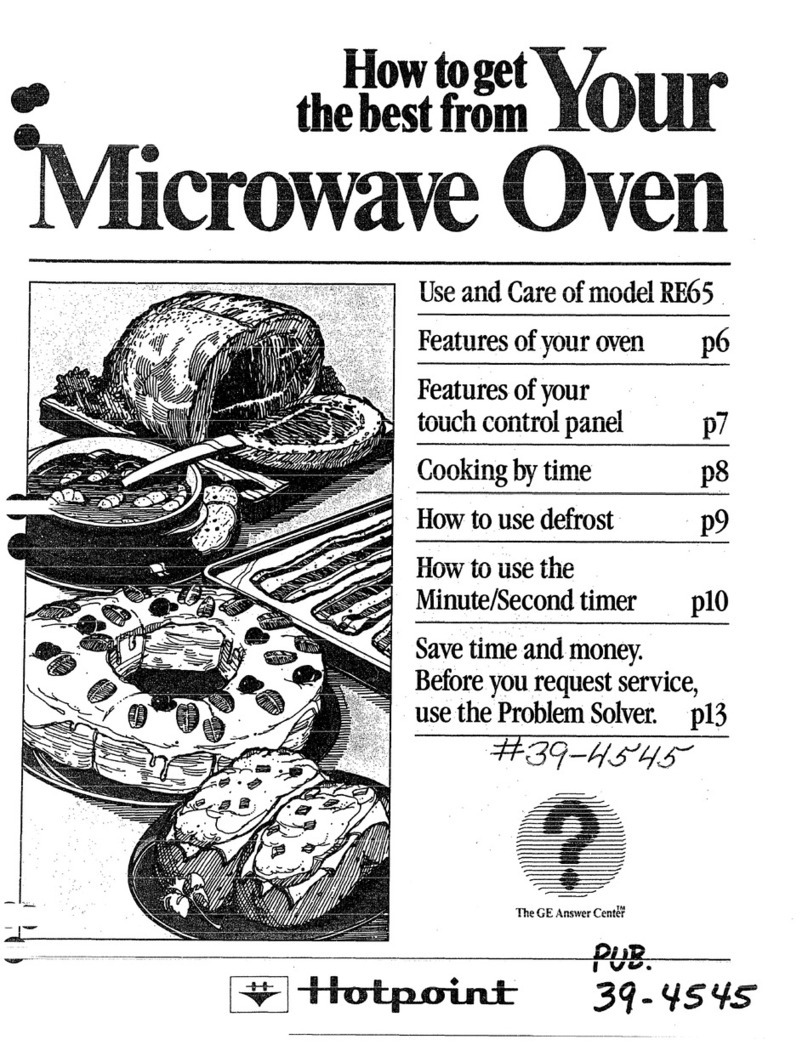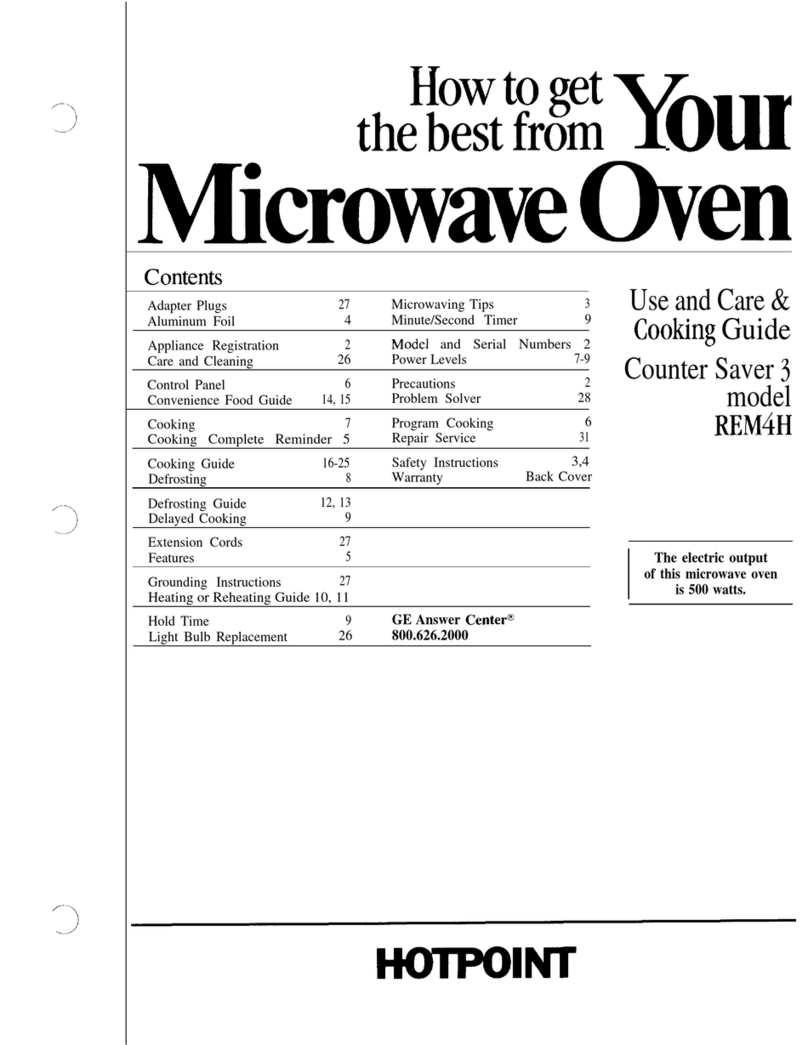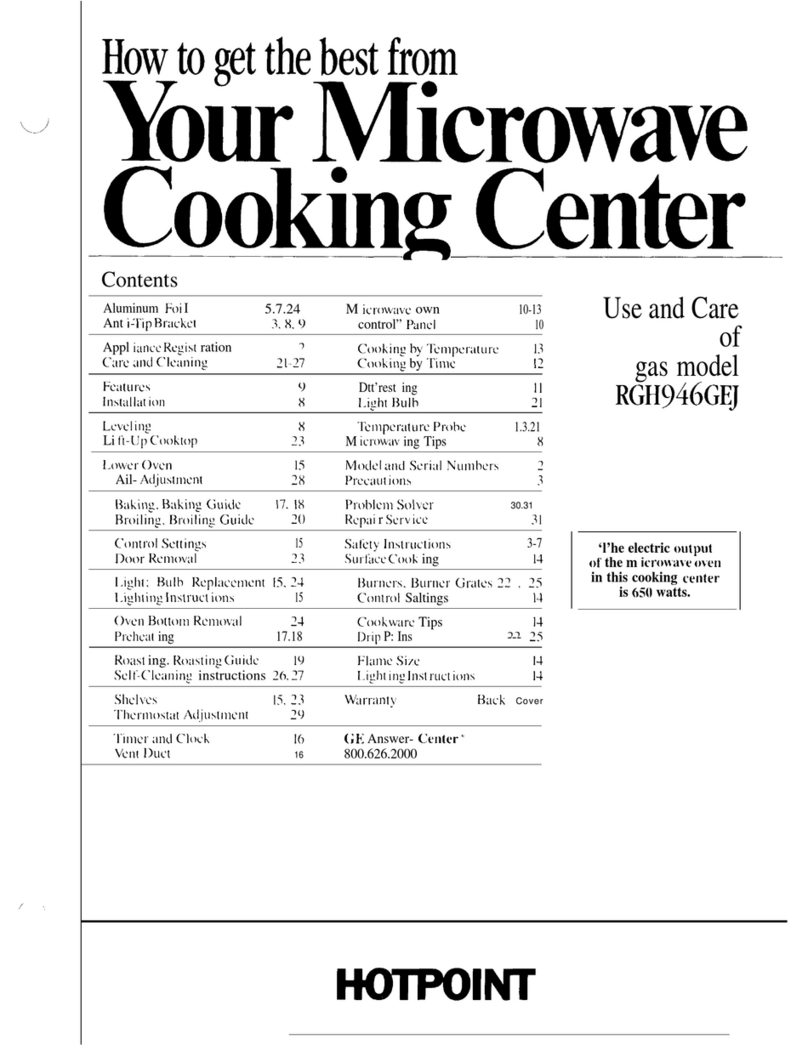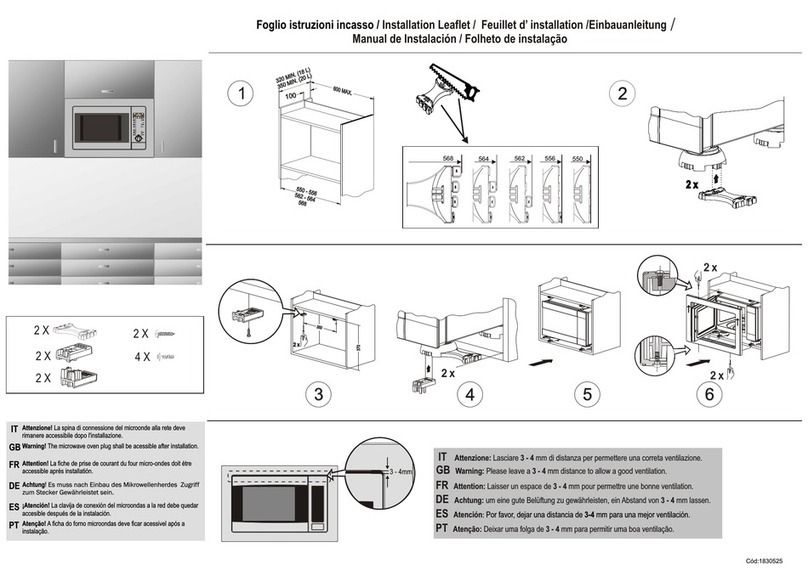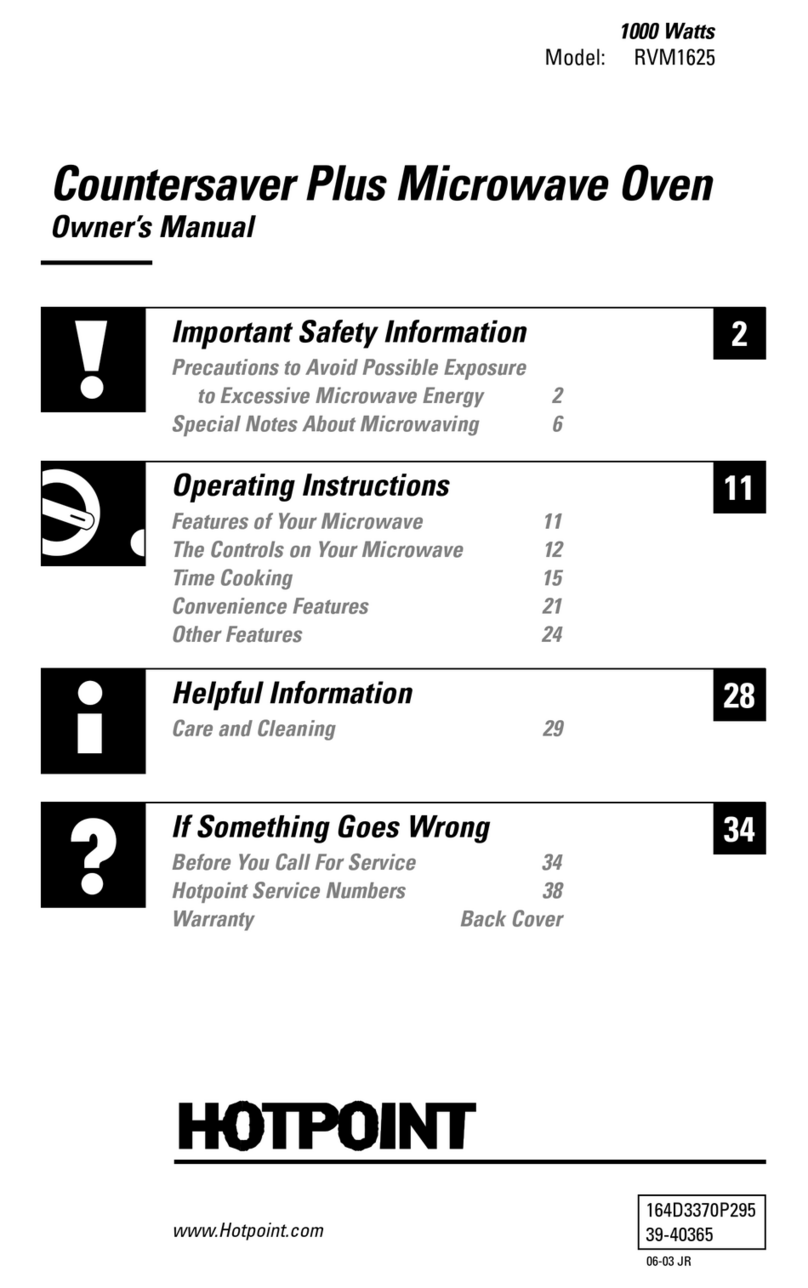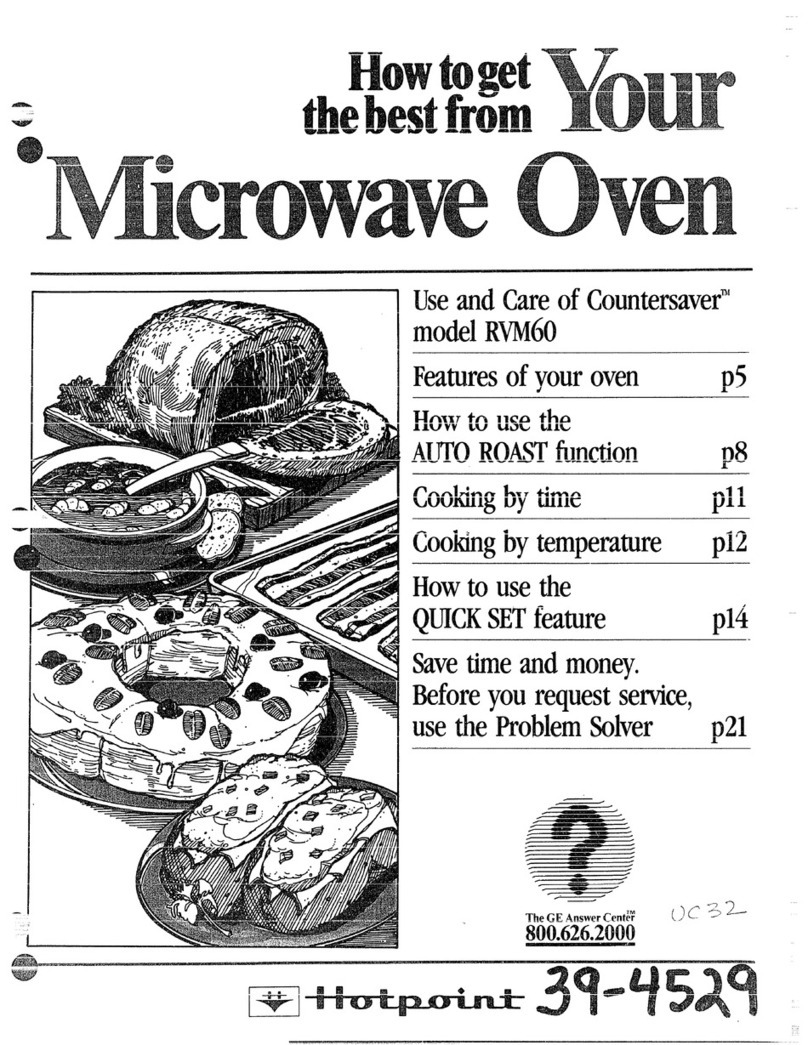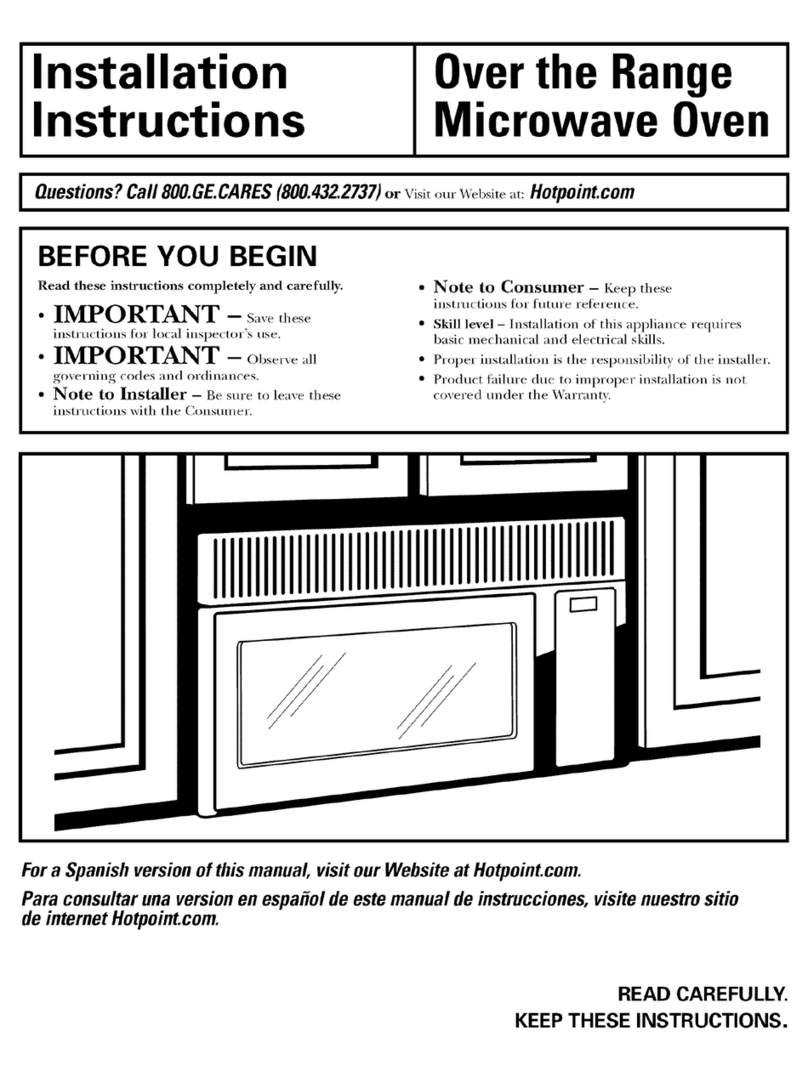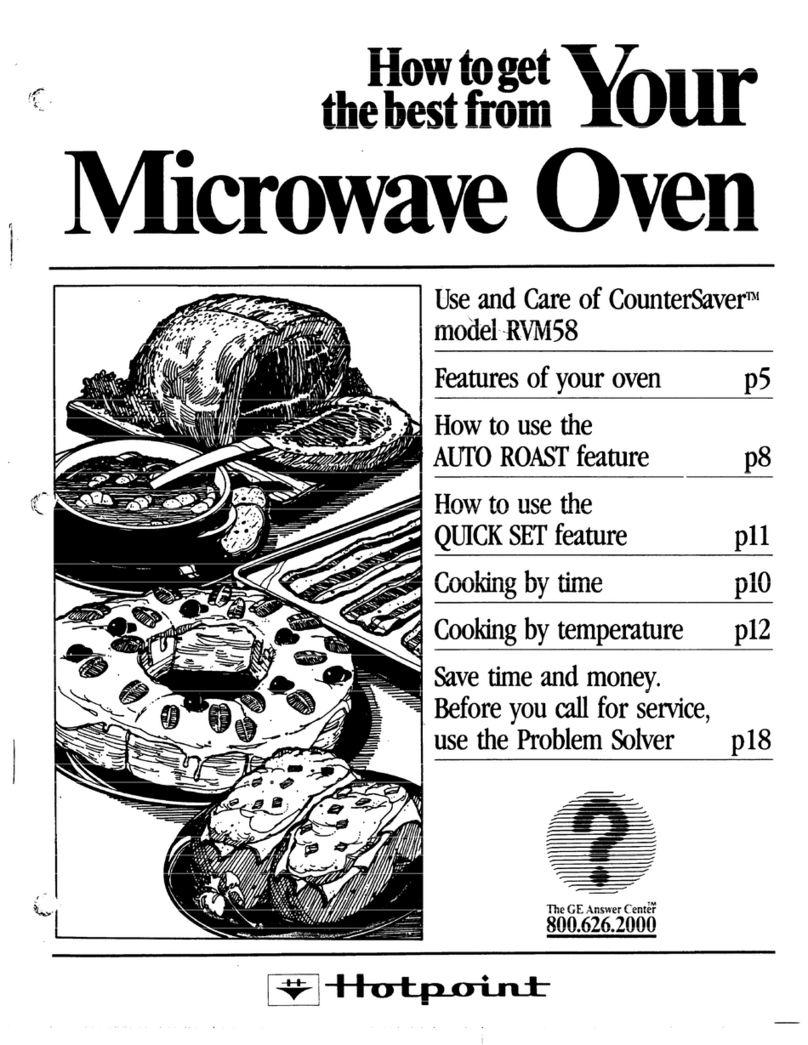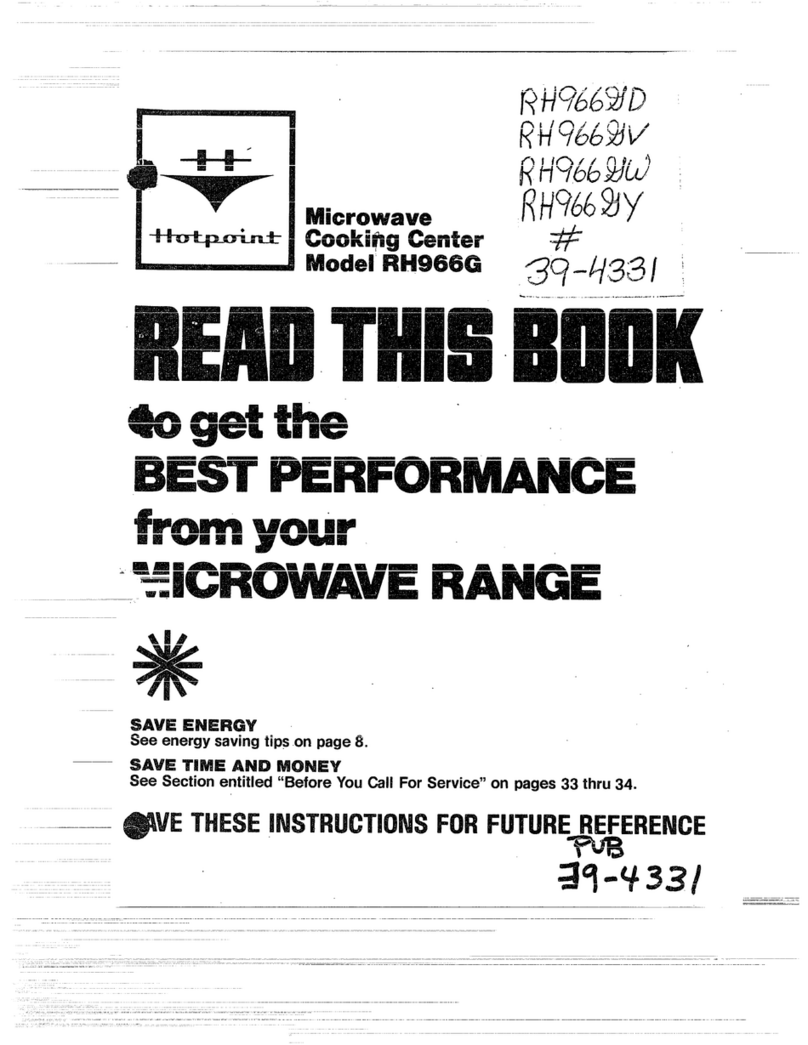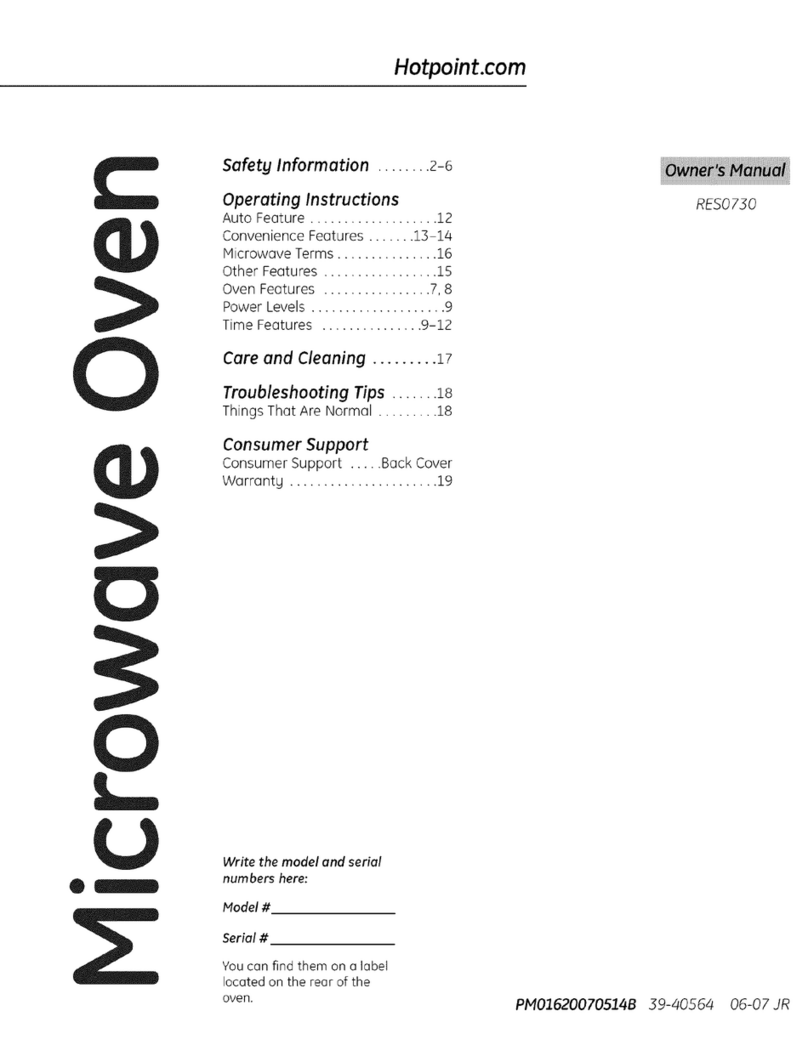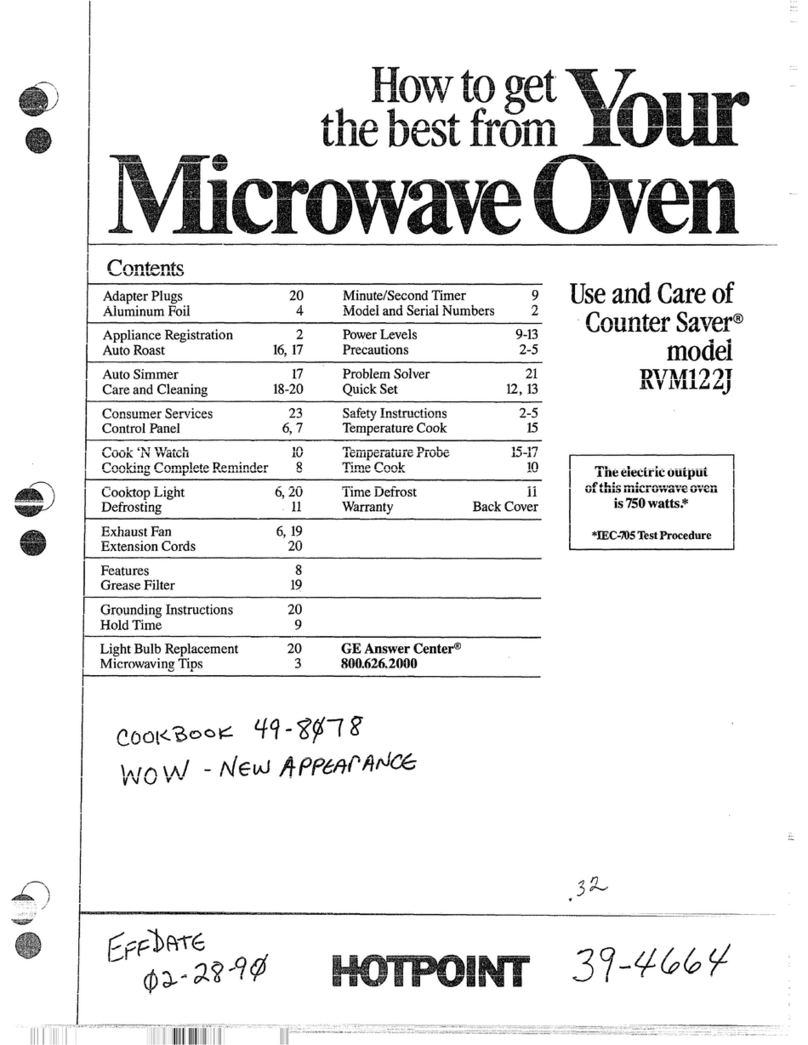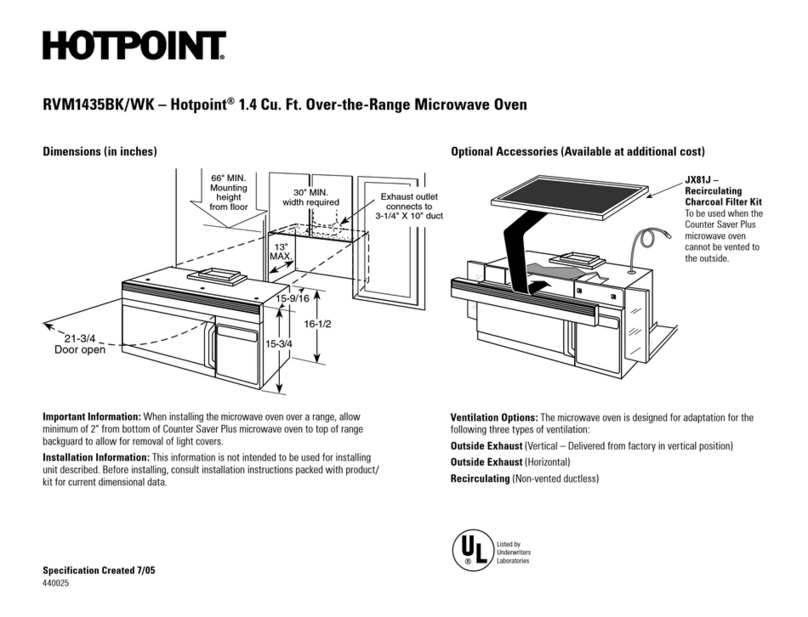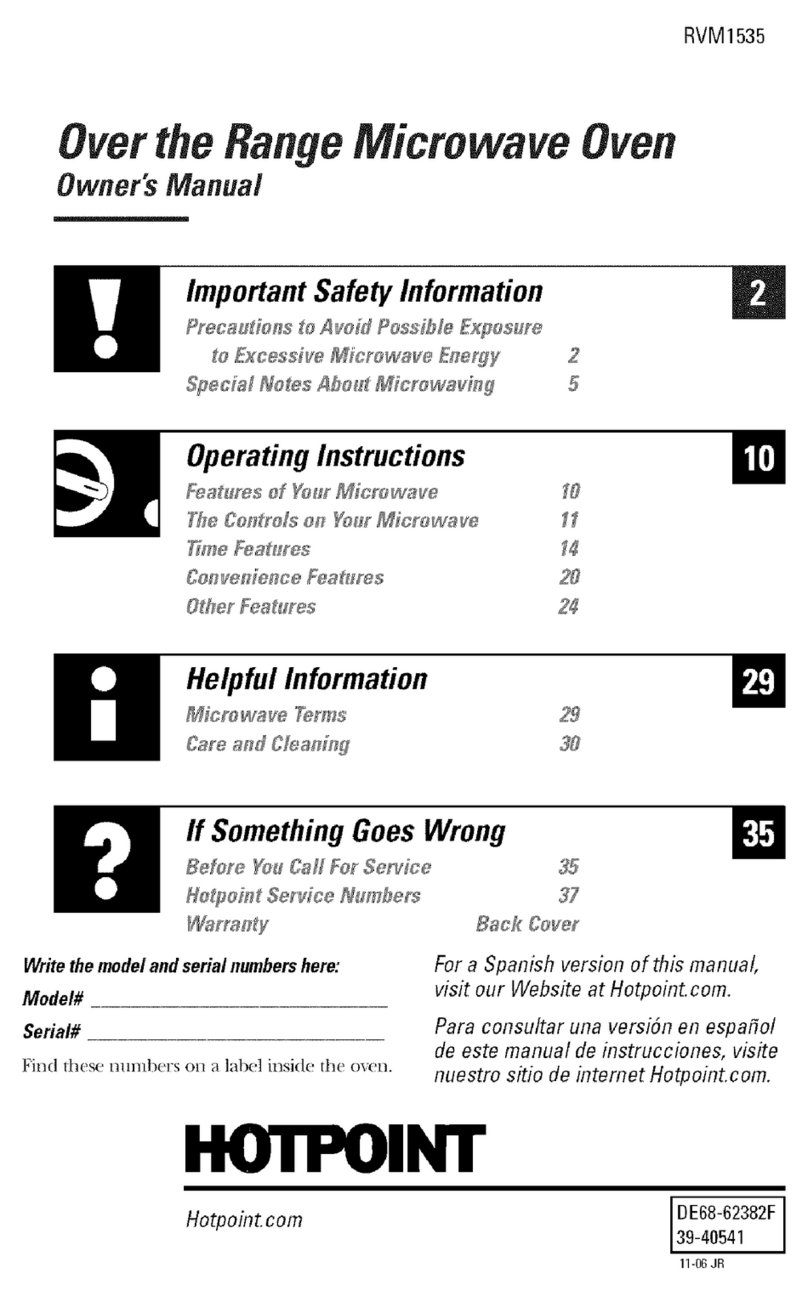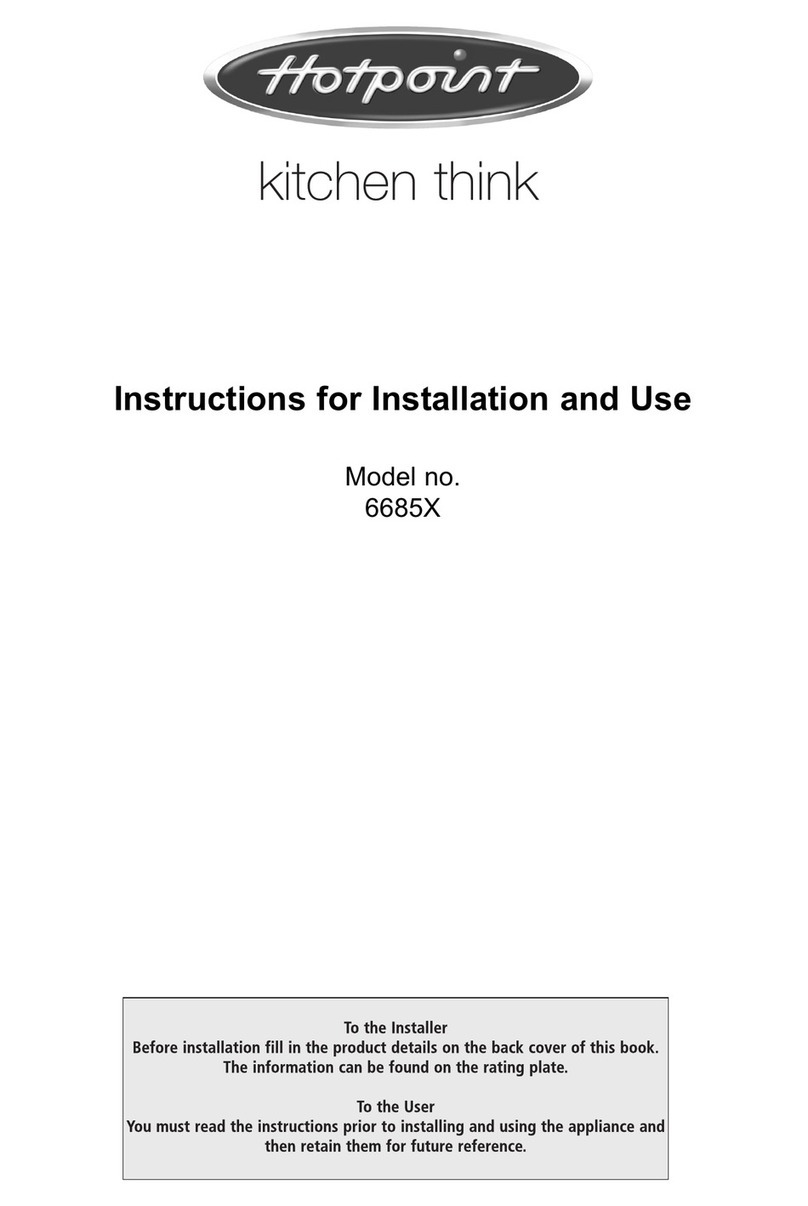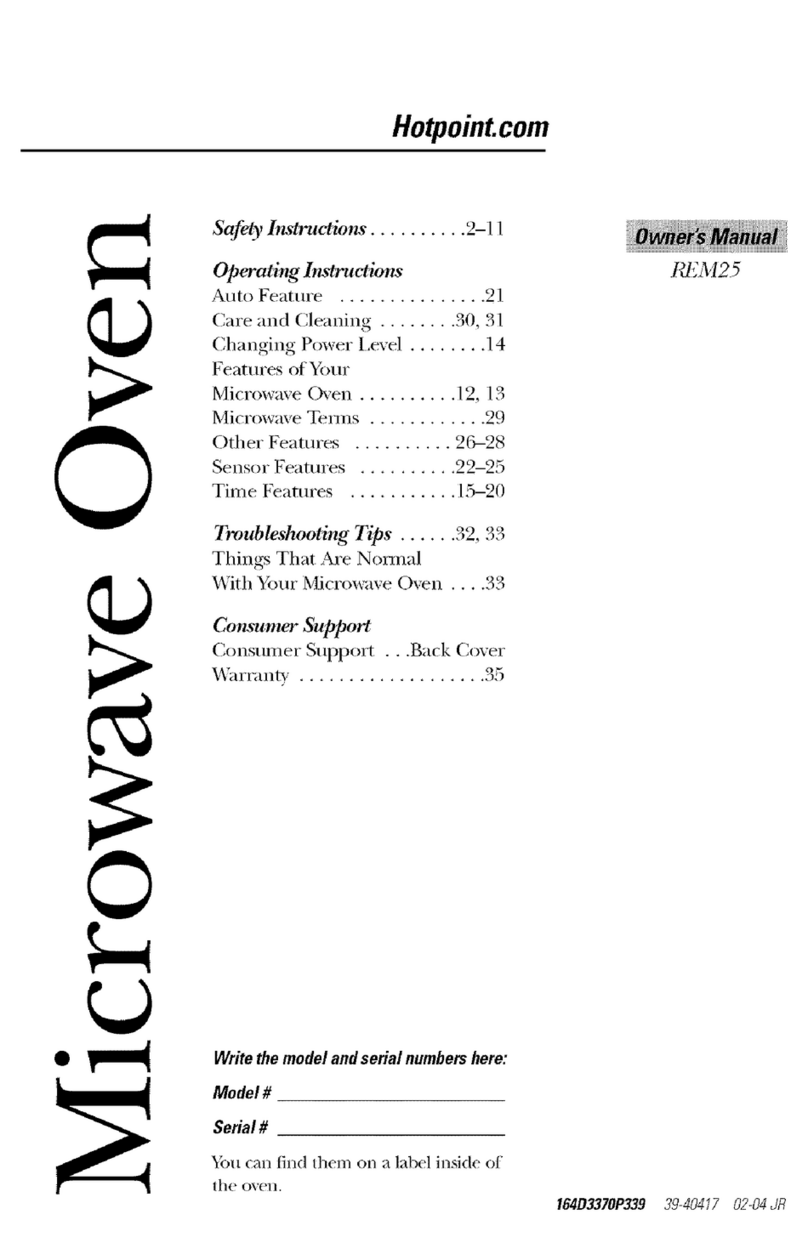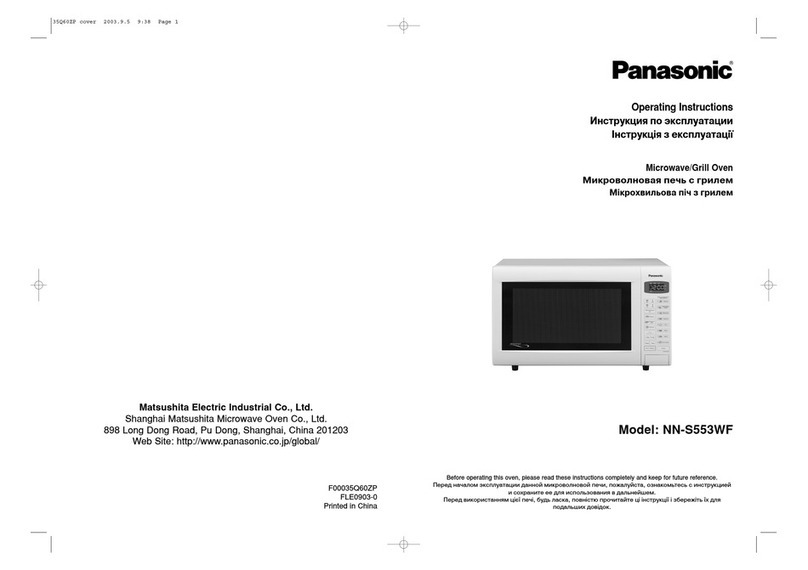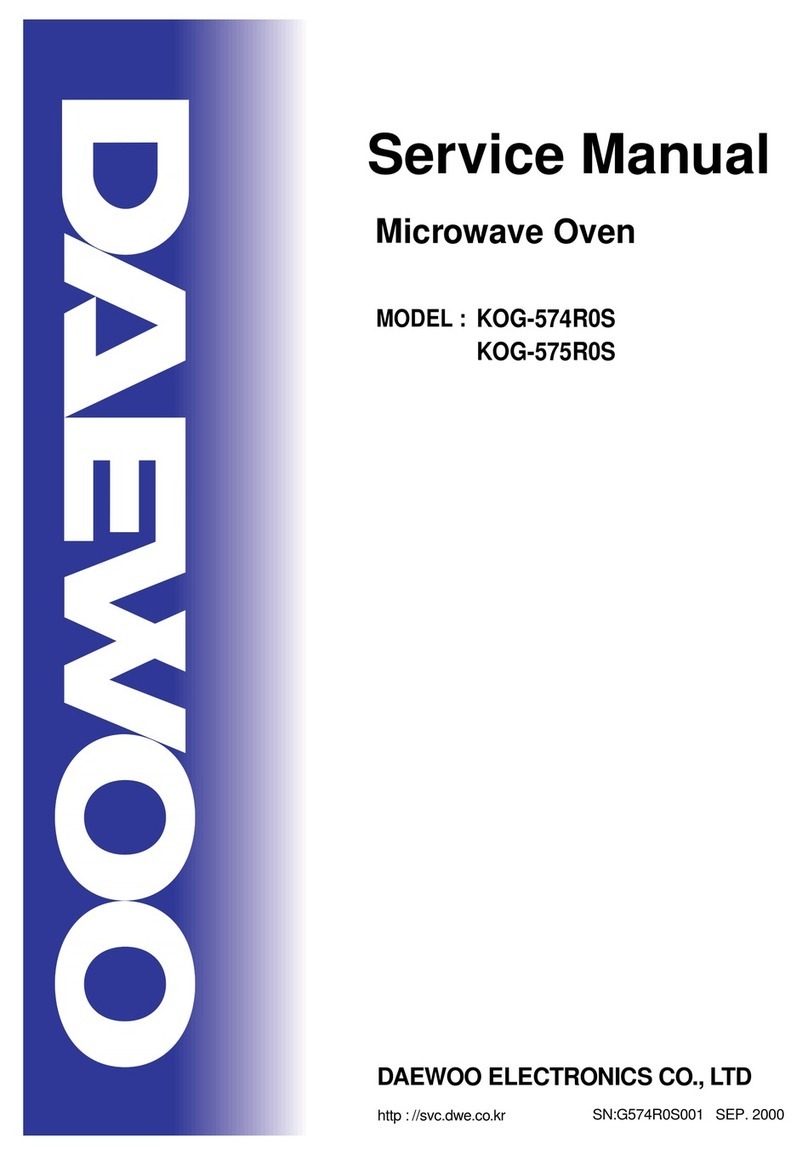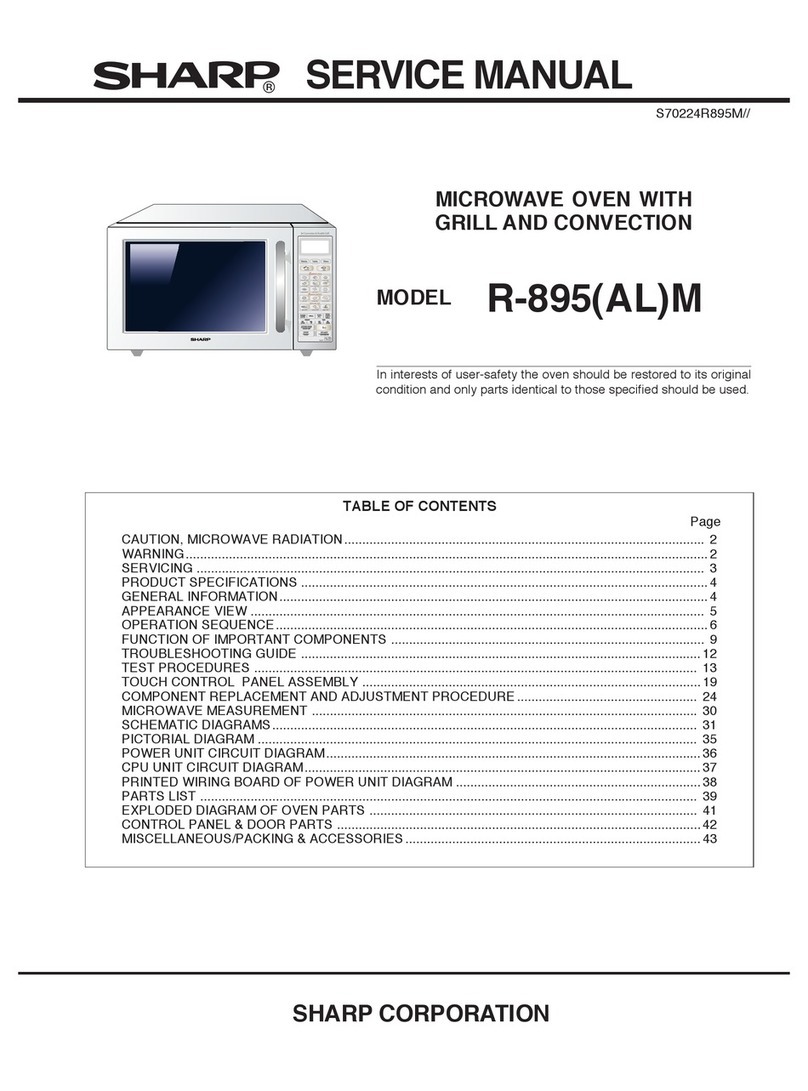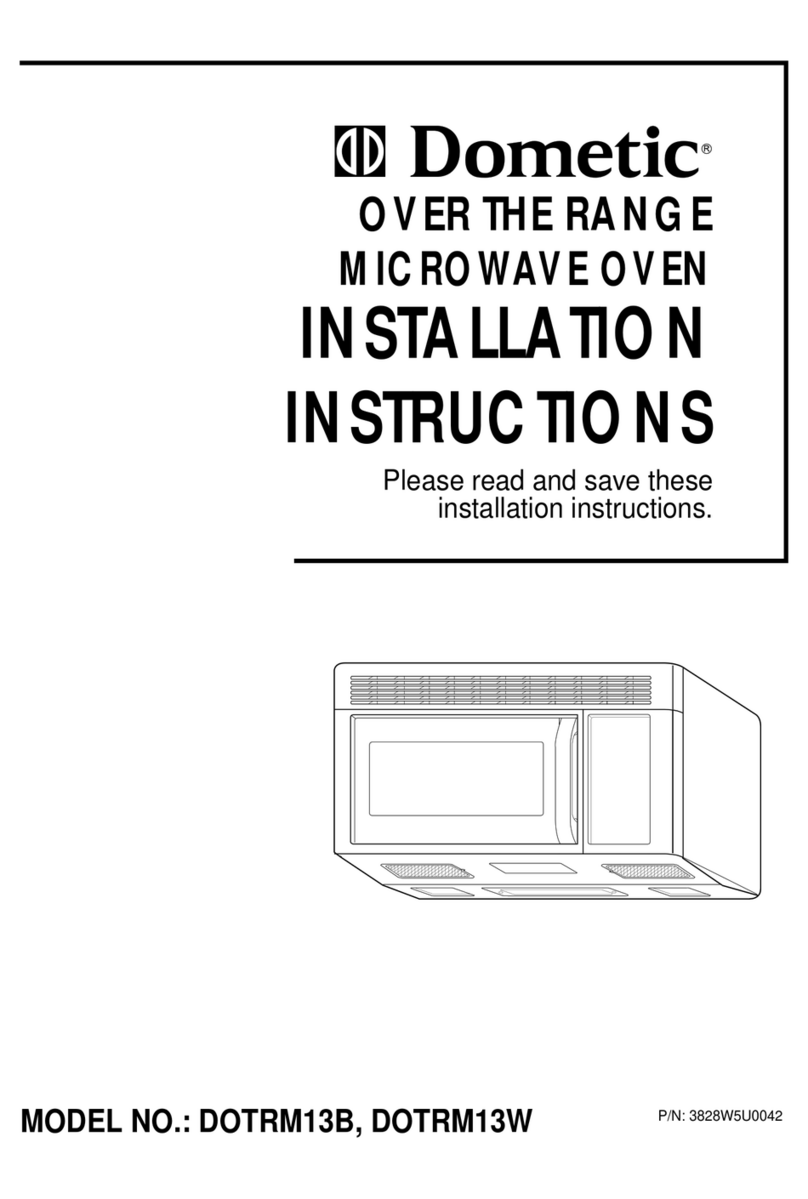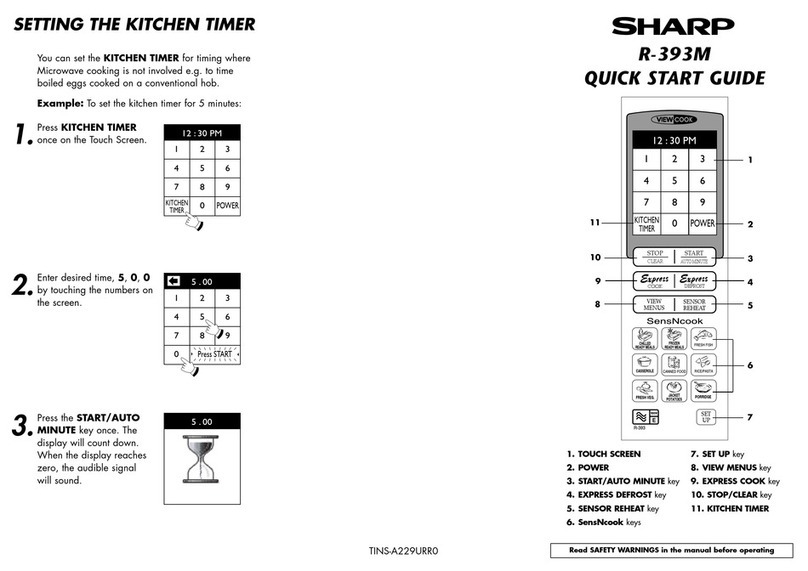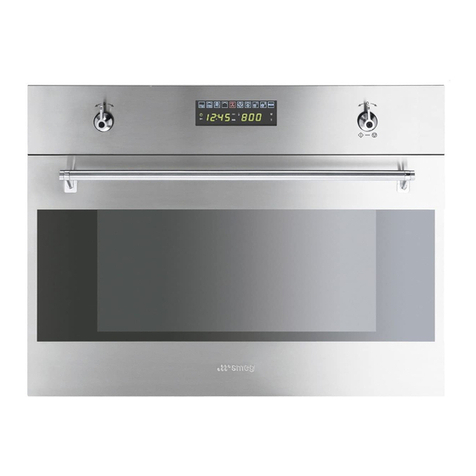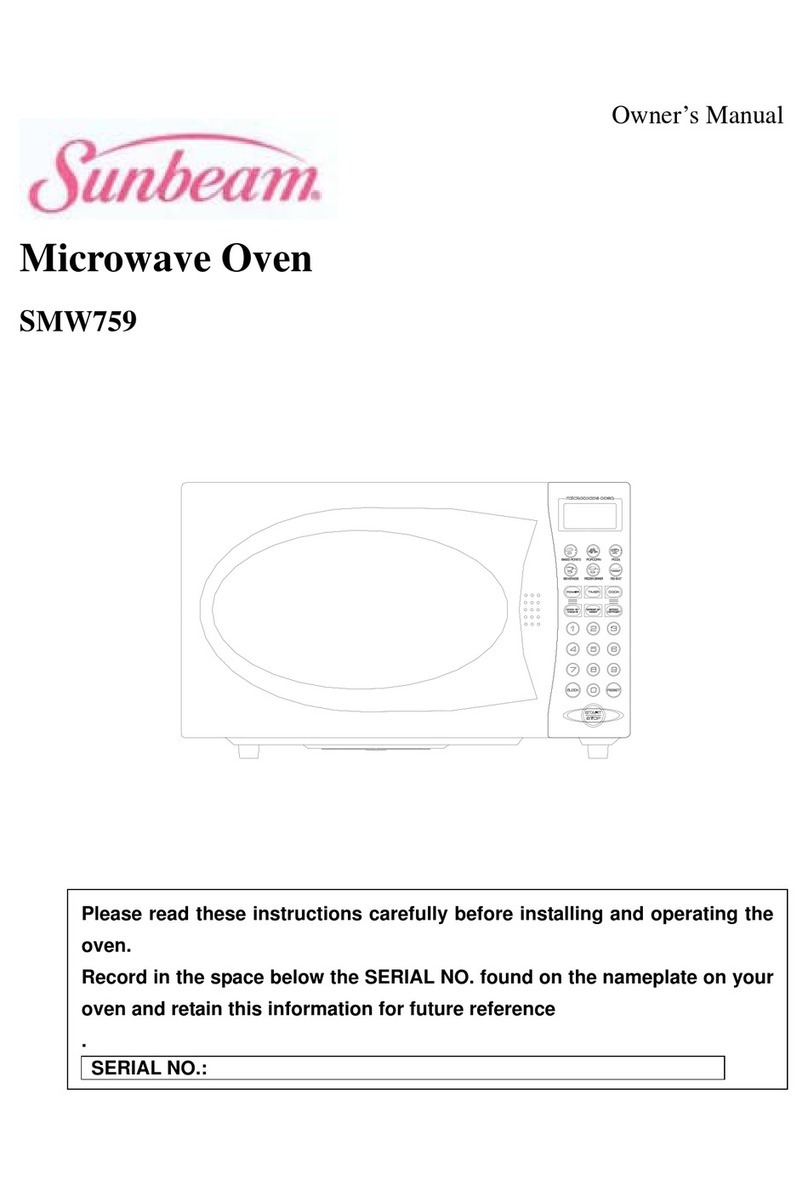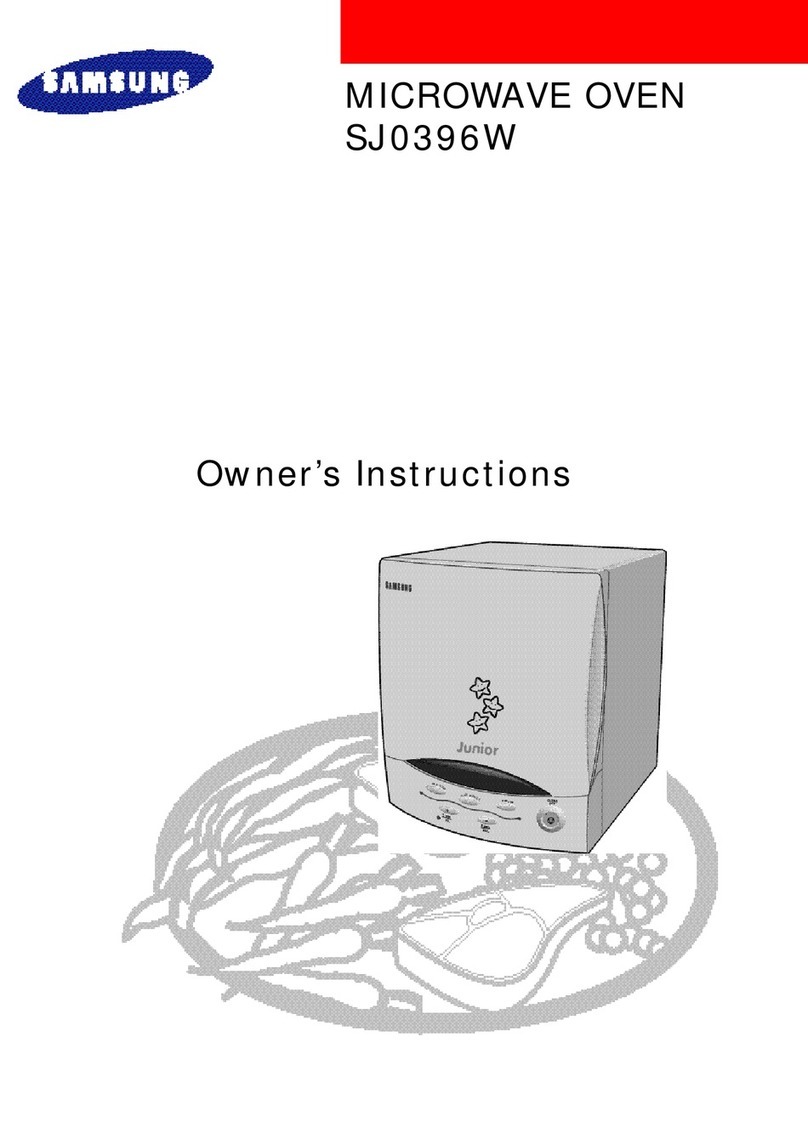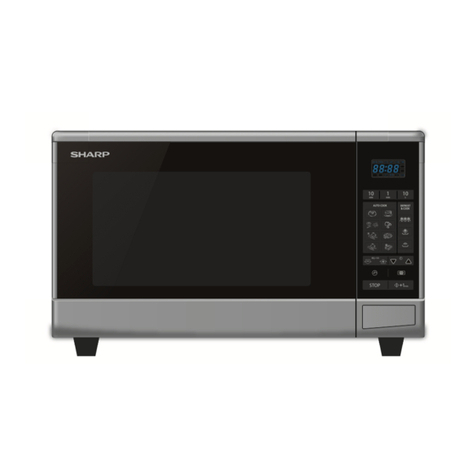
SafetyTipsSAVEI’WESE
INSTRUCTIONS
1. For personal safety the oven must be properly
grounded. See grounding instructionson page 3of
this book. For best operation, plug this appliance
into itsown electricaloutlet, to preventflickering of
lights,blowingof fuseor trippingofcircuit breaker.
2. Use of extension cords. Because of potential
safetyhazardsunder certain conditionswe strongly
recommend against the use of an extension cord.
However, if you still elect to usean extension cord,
it isabsolutelynecessarythat itbeaUL listed3-wire
grounding type appliance extension cord and that
the current carrying rating of the cord in amperes
be 15amperes or greater. Such extension cordsare
obtainable through Hotpoint service. if you do use
an extension cord with your microwave oven, the
interior light may flicker and the blower sound may
vary when oven is in use.
3. Be certain to place the front surface of the door
three inches or more back from the countertop
edge to avoid accidental tipping of the appliance in
normal usage.
4. Use metal only as directed in cookbook. Metal
stripsas used on meat roastsare helpful in cooking
food when used as directed. Metal trays may be
used for TV dinners. However,when using metal in
the microwave oven, keep metal at least l-inch
away from sidesof microwaveoven.
5. DO not operate the oven while empty to avoid
damage to the oven and the danger of fire. If by ac-
cident the oven should run empty aminute or two,
no harm is done. However, try to avoid operating
the oven empty at all times–it saves energy and
prolongslifeofthe oven.
6. Cooking utensils may become hot because of
heat transferredfromthe heated food. This isespe-
cially true if plasticwrap has been covering the top
and handles of the utensil. Pot holders may be
needed to handlethe utensil.
7. Sometimes, the oven floor can become too hot
to touch. Be careful touching the floor during and
after cooking.
Do not use any thermometer in food you are
microwaving unless that thermometer is designed
or recommended for useinthe microwaveoven.
9. Remove wire twist-ties on paper and plastic
bags before placing in oven. Twist-ties sometimes
cause bag to heat, and may causefire.
10. Don’tdefrost frozen beverages in narrow necked
bottlesespeciallycarbonated ones. Even ifthe con-
tainer is opened, pressure can build up. This can
cause the containerto burst, resultingin injury.
11. Don’t overcook. Excessive overcooking dehy-
drates potatoes, and may cause them to catch fire
causing damage.
4
12. If food should ever ignite: Keep the oven door
closed. Turn off the power immediately: Turn
TIMER to “O”or “OFF” or disconnect power cord or
shut off power at the fuse circuit breaker panel.
13. Boiling eggs (in and out of-shell) is not recom-
mended for microwavecooking. Pressurecan build
up insideegg yolkand maycause it to burst, result-
ingin injury.
14. Foodswith unbroken outer “skin” such as po-
tatoes, hot dogs or sausages, tomatoes, apples,
chicken livers and other giblets, and eggs (see
above) should be pierced to allow steam to escape
duringcooking.
15.‘Boilable” cooking pouches and tightly closed
plastic bags should be slit, pricked or vented as di-
rected in Cookbook. If they are not, plastic could
burst during or immediatelyafter cooking, possibly
resulting in injury. Also, plastic storage containers
should be at leastpartiallyuncovered because they
form atight seal. When cooking with containers
tightly covered with plastic wrap, remove covering
carefully and direct steam away from hands and
face.
16. Do not pop popcorn in your microwave oven
unless in aspecial microwave popcorn accessory
or unlessyou use popcorn labeled for use in micro-
wave ovens. Becauseof the heat generated without
these precautions,the container couldcatch fire.
17 Plastic Utensils–Plastic utensils designed for
microwave cooking are very useful, but should be
used carefully. Even microwave plastic may not be
as tolerant of overcooking conditions as are glass
or ceramic materialsand may softenor char if sub-
jected to short periodsof overcooking. In longer ex-
posures to overcooking, the food and utensils
could ignite. For these reasons: 1) Use microwave
plastics only “and use them” in strict compliance
with the utensil manufacturer’s recommendations.
2) Do not subject empty utensilsto microwaving.3)
Do not permit children to use plastic utensilswith-
out complete supervision.
18. Do not use your microwave oven to dry news-
papers. Ifoverheated, they can catch fire.
19. When cooking pork follow our directions
exactly and always cook the meat to at least 170°.
This assuresthat, in the remote possibility that tri-
china may be present in the meat, it will be killed
and meat will be safeto eat.
20. Avoid heating baby food in glass jars even
without their lidsespecially meat and egg mixtures.
